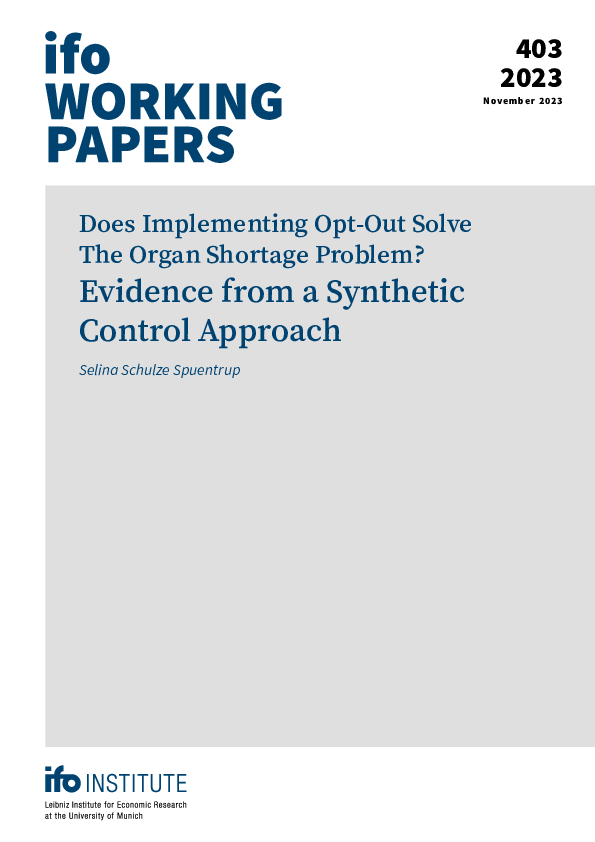Does Implementing Opt-Out Solve The Organ Shortage Problem? Evidence from a Synthetic Control Approach
ifo Institute, Munich, 2023
ifo Working Paper No. 403

In light of the persistent shortage of organ donations needed to save precious human lives, several countries have modifed their organ donation laws introducing an opt-out system. Using a panel dataset covering a 21-year period, I apply a synthetic control approach to focus on countries that changed their prevailing organ donation legislation from opt-in to opt-out. I compare them to a synthetic counterfactual from countries that have kept their legislation the same since 1999. Synthetic control estimates show that Argentina and Wales achieved substantially higher organ donation rates with the shift from an opt-in to an opt-out system than without the reform taking place. My fndings suggest that as one strategy among others, implementing opt-out cannot solve the organ shortage problem entirely but effectively contributes to reducing it considerably.